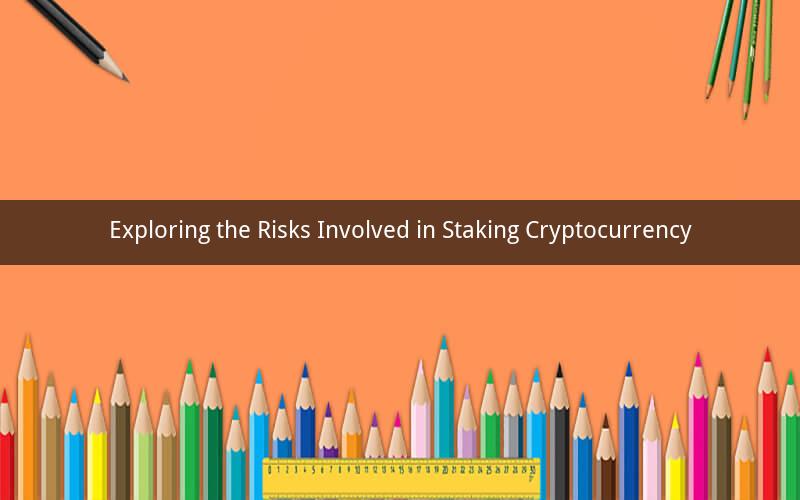
In recent years, the rise of decentralized finance (DeFi) has introduced a new wave of investment opportunities, with one of the most popular being staking cryptocurrency. Staking is the process of locking up your crypto assets to support a network's security and validate transactions, in return for rewards. While staking can be a lucrative way to generate income, it also comes with certain risks. This article delves into the potential risks involved in staking crypto and how investors can mitigate them.
1. Market Volatility
One of the biggest risks associated with staking cryptocurrency is market volatility. The value of digital currencies can fluctuate widely, and if the market takes a downturn, the value of your staked assets could plummet. This could result in a loss of principal or a decrease in potential rewards.
Solution: Diversify your portfolio by staking different cryptocurrencies. This can help reduce the impact of market volatility on your overall investment.
2. Network Risks
Another risk to consider is the potential for network attacks, such as 51% attacks or double-spending. These attacks can compromise the integrity of a blockchain network, leading to loss of funds or a complete collapse of the network.
Solution: Research the security measures implemented by the cryptocurrency you plan to stake. Look for networks with robust consensus algorithms, such as Proof of Stake (PoS), and ensure they have adequate security protocols in place.
3. Smart Contract Vulnerabilities
Smart contracts are an essential component of many blockchain platforms, enabling decentralized applications (DApps) and other innovative services. However, smart contracts can be vulnerable to bugs and security flaws, which could be exploited by malicious actors.
Solution: Stay informed about smart contract vulnerabilities and the ongoing development of the cryptocurrency you're staking. Regularly update your wallet and ensure you're using a reputable platform.
4. Centralization Risks
While staking aims to decentralize the process of validating transactions, some PoS networks can still suffer from centralization risks. If a small group of participants holds a significant portion of the total staked tokens, they could potentially manipulate the network.
Solution: Choose networks with a diverse and decentralized participant base. This helps ensure that the network remains secure and fair.
5. Regulatory Uncertainty
Regulatory frameworks for cryptocurrencies are still evolving, and this uncertainty can pose a risk to staking investments. Governments may impose new regulations that could affect the staking process, or they may even ban certain cryptocurrencies outright.
Solution: Keep abreast of regulatory developments and consider the potential impact on your staked assets. Be prepared to adapt your strategy as needed.
Frequently Asked Questions
Q1: Can I lose all my money by staking cryptocurrency?
A1: Yes, there is a risk of losing your investment when staking cryptocurrency. Market volatility, network attacks, and regulatory changes can all contribute to potential losses.
Q2: Is staking a better investment than other cryptocurrencies?
A2: Staking can be a lucrative investment, but it's essential to research and understand the risks involved. Compare the potential rewards with other investment options and consider your risk tolerance before deciding to stake.
Q3: How can I mitigate the risk of market volatility when staking?
A3: Diversify your portfolio by staking different cryptocurrencies and spreading your investment across various networks. This can help reduce the impact of market volatility on your overall investment.
Q4: What should I look for in a cryptocurrency before staking it?
A4: When selecting a cryptocurrency to stake, consider its security features, network consensus algorithm, regulatory status, and the overall stability of the network. Ensure that the platform has a strong community and ongoing development efforts.
Q5: Can I unstake my cryptocurrency at any time?
A5: Whether or not you can unstake your cryptocurrency depends on the specific staking platform and the terms of the agreement. Some platforms may require a lock-up period or have penalties for early unstaking, so be sure to review the terms before committing your assets.